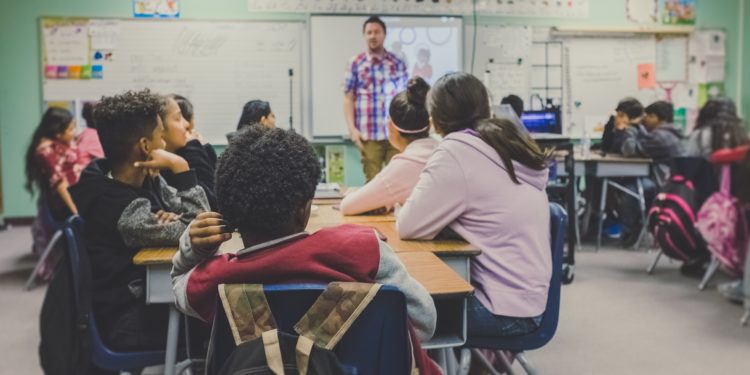For those in the teaching profession, making sure lessons are engaging and provide the best experience for their students can be one of the hardest aspects of their career to get right. To help you out, we’ve put together the following post where we will cover some of the best ways to help make lessons more engaging and rewarding for both the students and teachers. Keep reading if you want some fresh inspiration for your lesson planning.
Encourage Student Input
Although as the teacher it is your role to lead a lesson, allowing students to have a big input in the lesson and topics discussed can really help to improve how engaged they are with it. For example, throughout the lesson, you can ask your students questions that help to gain their attention if you feel they are becoming distracted. Giving them the opportunity to think of and ask their own questions can also encourage them to think more deeply about the topics being discussed within the lesson and encourage further interest.
Give Students The Opportunity For Debate
This leads us to the importance of encouraging debate within your lessons. Debate is a hugely effective tool in getting students to really delve into a topic and form their own opinions on them. It’s also an incredibly effective way to encourage them to research topics and improve their knowledge. If you make your students aware that there will be a debate being held on a specific topic in the next lesson, for example, this will encourage them to do their research in preparation for debating with their peers. If you’re going to be holding a student debate in your lessons, make sure they all have a fair input into the debate, and all have the opportunity to be heard. You should also make sure you’re listening to their points and providing respectful, constructive feedback. If students feel like their voice is being heard and respected, it will make them more likely to provide input in the future and enjoy debating.
Make Use Of Interactive Tools
Another effective method you can make use of in lessons are interactive tools. Quiz games are a popular way of getting students more involved in lessons and topics by creating a more relaxed and entertaining element. Another brilliant resource for schools to gain insight into their student’s knowledge and opinions is to use live polling. Live polls are a useful tool for getting students to interact with lessons and reflect on their opinions on a topic. It also has the benefit of giving you an insight into subjects or feedback on your lessons.
Encourage Collaborative Working
Another way to make lessons more interesting and interactive for students is to encourage collaborative work. This has the added benefit of getting your students to improve their communication and teamwork skills, a great asset to have when going into the workplace in the future. Although there does need to be some structure to your lessons, it can also be helpful to allow the students to have some free time within the lesson where they are allowed to collaborate and work together independently with each other. This encourages students to use critical thinking skills and collaborate on group projects.
Take On Board Student Feedback
A good teacher will want to make sure that their students are getting the most out of their lessons they can. For this reason, it’s important to make sure you give students the opportunity to give feedback on lessons. You can do this in various different ways. For example, you can gain feedback in person from your students, or through feedback forms. These can be done either through paper copies or online. As well as asking direct questions in your feedback forms, give students the opportunity to add their own comments. Implementing feedback into your lesson planning can mean students can learn in a style that suits them best and allows you to adapt your lessons to your students for more effective learning.
Discuss Lesson Ideas With Your Colleagues
As well as using feedback from your students, your teaching colleagues can be a useful way of learning more about teaching techniques. Discussing lesson topics with other teachers can help you to learn more about lesson ideas and planning for future classes. A new perspective may be helpful in giving you inspiration for your lessons if you feel you’re starting to run out of ideas. Other teachers might also have experience with teaching methods and tools they can recommend that they have used previously if they provided positive results for them and their students.
Mix-Up The Routine Of Your Lessons
Over time, using the same routine in your lessons can lead to boredom for your students and it might become difficult to keep them engaged. Adapting your lessons to include new routines will help to capture their attention and reduce the chances of students mentally checking out of teaching. Creating new experiences is a fantastic technique to help students absorb information. Memory recall is closely tied to the brain experiencing new things and having novelty in lessons. If you feel like your lessons are following a similar pattern, then consider ways in which you could mix up your lessons. For example, could you take a lesson outside? Or could you include more creative aspects to help students learn new topics?
Invest In Your Own Skills
In order to effectively lead your lessons and bring your best to your teaching, you need to be continually investing in your own skillset and knowledge. Keep your eye open for teacher training opportunities or workshops on new teaching methods you think could help improve your lessons. You can find out more about training opportunities through your work colleagues and management. Putting yourself forward for training opportunities shows that you’re invested in your teaching and will stand you in good stead for future promotions or new job opportunities.
Working With Other Teachers
If you want to change up your lessons, why not ask other teachers if they want to collaborate on a lesson? This gives you the opportunity for fresh insight into topics and can help balance a workload for both you and your colleagues. It also benefits the students, giving them the chance to work together with other students and work in different environments. Having another teacher working alongside you can also help with more disruptive students and classes that struggle to remain calm while learning. Collaborating on lesson planning with your colleagues can make the task of planning easier as you will be able to voice ideas and bring them together, helping to reduce the time it takes to plan lessons and bring fresh ideas.
Creating Lesson Objectives
Creating lesson objectives for your students to achieve during lessons is a good way to help make sure they’re getting the most out of each lesson. It can help to bring a structure to lessons so that they follow a clear course. Keeping track of your lesson objectives throughout the lesson helps to make sure you’re covering everything you need to in the curriculum and hitting any teaching targets you set for yourself. When planning your lessons, make sure you understand what it is you want you want to achieve from your lessons and what you want your students to achieve. You can use learning objectives to help put together lessons and plan activities.


![7 Best POS Software in the UK [2026 Edition]](https://todaynews.co.uk/wp-content/uploads/2026/02/7-Best-POS-Software-in-the-UK-2026-Edition-360x180.png)










































































